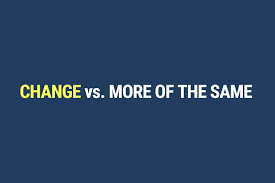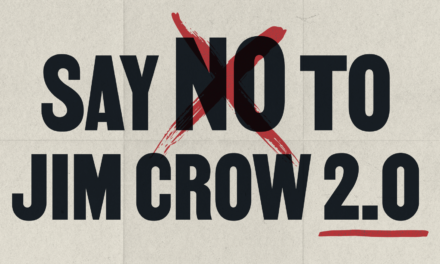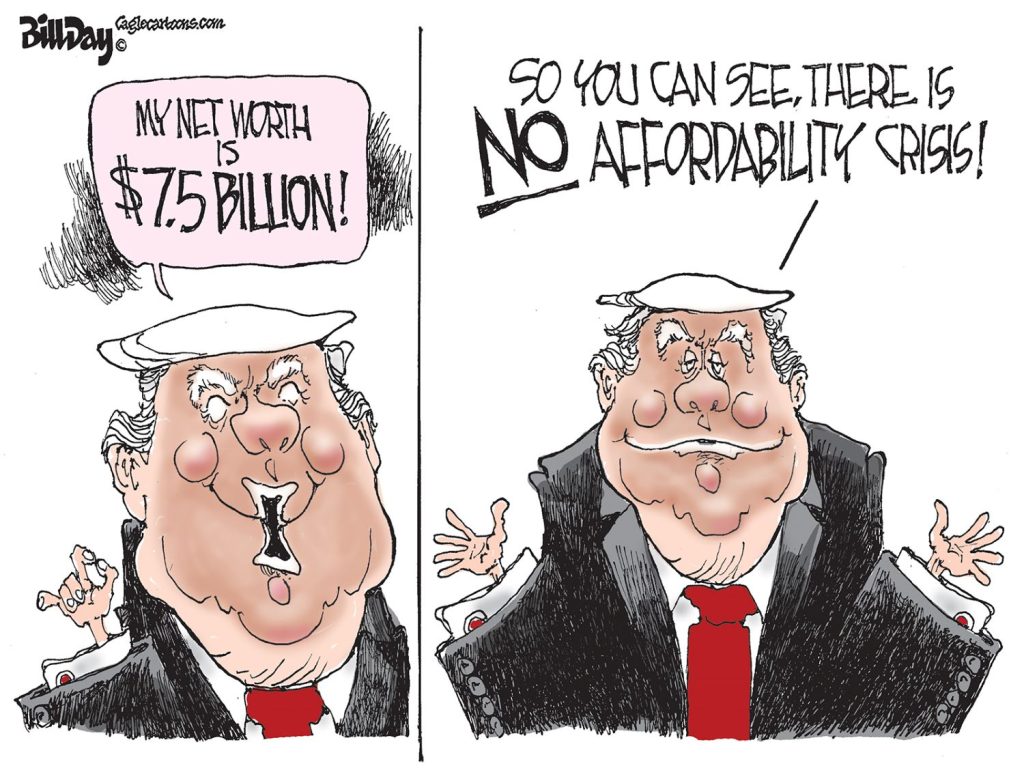Thumbnail: The new committee on reimaging policing has the opportunity to be the change agent that Memphis has needed. It requires them to do more than rely on the usual suspects for ideas, data, and recommendations. Recent research by Prof. Barry Friedman and commentaries by consultant David Eichenthal are must reads for the committee to get off on the right foot.
**
Finally, Memphis has a committee on reimagining policing once Memphis Mayor Jim Strickland named 13 people to take up the task.
But – and it’s a big but – it’s only a first step and means nothing unless the committee is provided with independent research and innovative thinking. That’s because if the committee relies on tired thinking like that from the Memphis-Shelby Crime Commission and business as usual advice from Memphis Police Department, this will end up like so many government committees appointed over the years by City Hall – it’s all about appearances and little about really changing things.
Because of that, committee members should take the initiative and conduct their own research, challenge conventional wisdom, question “official” recommendations, and draw their own independent conclusions.
City Hall may call it an “advisory committee” so it can easily discard its recommendations, but there are advisory committees and then there are advisory committees. This one, by exerting itself and forcefully staking out crucial public space can defy its description. It has the ability to be much more than just an advisory group issuing suggestions that the Strickland Administration can ignore.
Hopefully, early on, the committee members will get assurances that it’s not just another committee created for political window dressing, but that its members’ opinions and conclusions will have clout.
Required Reading
With this in mind, here’s where the members of the citizen advisory committee should begin in its self-education
- Contact and arrange call with David Eichenthal, who is familiar with City of Memphis as the lead PFM consultant for the Memphis Plan: A Strategic and Management Plan for the City of Memphis, FY 2014-FY 2018. Besides his in-depth knowledge of city government, he is executive director of PFM’s Center for Justice and Safety Finance and its work to address systemic racism through specific actions.
- Read March 30, 2020, report by Professor Barry Friedman of the New York University School of Law, Disaggregating the Police Function, and watch video with Friedman.
It’s not that Mr. Eichenthal and Professor Friedman challenge the orthodoxy that surrounds most discussions about police functions but they offer insights and recommendations for improving and rationalizing the role of the police. Their well-reasoned and provocative recommendations defy the casual disregard from “law and order at any cost” quarters that regularly greets calls for change.
The Committee’s Charge
Professor Friedman’s report rationally and incisively examines what policing today is, what it could be, and how it could get there. In doing this, he considers both the issue from both the public and the police’s perspective within the context of a need for change. In a chapter (page 52), Reimagining Public Safety, he articulates the charge that the Memphis committee should adopt for its work:
If public safety is the goal, it must be clear by now that some change is called for in our societal response to the problems police encounter. The police have not – we have not – adequately differentiated the functions that police officers are asked to perform. Much harm occurs because we send armed people – who are trained and see their mission as force and law – to deal with myriad problems not particularly susceptible to this solution.
What we need to do is reimagine the “public safety” function from the ground up. Society has specialized but the police have not. Society has come to see many of the problems the police confront as public health concerns, but we still meet them with the same response. We need an approach the differentiates functions and meets tasks with the set of skills that can perform them adequately.
What Prof. Friedman does is to take a different approach to the very core of policing functions themselves. It does this by disaggregating what police officers are called upon to do while their actual work requires an entirely different set of skills.
“Policing imposes serious and extensive harm, from shootings and non-lethal uses of force, to stops, searches, arrests, and incarceration. All of this comes with pervasive racial disparities and seek to address them with ‘harm-regulating’ tools.
“Harm-regulation techniques are unlikely to be successful, however, as we see all too well in practice. Harm is not collateral to policing, it is innate to it. We call police crimefighters, we train them in using force and enforcing the law, and we deploy them to do this. So, it should come as no surprise that what we get is force, and law enforcement. And that this approach does little to address the sorts of social problems – from homelessness to substance abuse to mental illness – that police confront every day.”
Committee Mandate: A Force for Change
With roughly 1,000 people shot and killed by police each year, change is clearly needed and no one should be more receptive than police officers themselves. After all, the situations that we toss them into are often toxic, quick to escalate, and require someone with difficult skills. All of these are replete with racial disparities.
“Until we look through the harms to the core of policing, the best we can expect is incremental change. That is because harm is innate to policing. Tightening up the rules on things like stops and arrests is not going to make them go away; at best it will reduce them. Nor is tightening up those rules going to be easy: because courts are loath to second guess the decisions of officers, constitutional law afford the police enormous leeway.
“More centrally, when we focus primarily on the collateral harms of policing, we take our eyes off what ought to be the ultimate goal of society: public safety. Policing agencies like to say they are in the business of public safety. The question we need to be asking is whether public safety is what we are getting. To be sure, at the last, public safety must mean ensuring the safety of individuals from government. But it also means things like being able to get to school during the day without worrying about gunfire and having a secure place to sleep at night. It means being able to distinguish between a public health problem and one that immediately and necessarily implicates the criminal law; mental illness, homelessness, and substance abuse are the former, not the latter. It includes having some confidence that when the response to a serious crime, they will not increase the trauma….
“If we truly want to achieve public safety, we need to look beyond minimizing the harms of policing and focus on what exactly the police do, asking whether that furthers society’s aims. Policing in the United States tends to be one-size-fits-all endeavor that puts primacy on what is unique about the police – using force and law – to achieve ‘public safety.’ Force and law, though, are an odd match, at best, for the actual problems the police are called out daily to address.”
In disaggregating the reasons the police are called and in turn disaggregating the roles that police officers are unreasonably required to play, we set up the police and the public to come into conflicts that can be avoided with a more thoughtful understanding of how to match the needed skills with the kinds of calls coming into the police.
Looking At The Pieces of Policing
Professor Friedman gives equal time to both sides of the coin: overpolicing and underpolicing.
In examining the mismatch between the calls the police receive and the tools needed to address them, he examines police as crimefighters – how they are treated, how they are recruited, how they are trained,(“what is glaringly obvious is that officers are trained primarily on how to use force and engage in law enforcement…where they get the least training by far is in the categories of mediation and social work, and in dealing with non-law enforcement emergent situations”), and how they are equipped.
In disaggregating policing functions, he looks at police as first responder, enforcer, mediator, social worker, traffic cop, proactive cop, and community police. Each of these requires a rethinking of police functions – our expectations as the public and their preparation as law enforcers. “Too much of what we treat through the criminal law and agencies of law enforcement are really problems of public health and social welfare. For various reasons, it has become our default to address them with the police power, literally, in the name of ‘public safety.’ But it is not at all clear we are achieving that safety and certainly not in optimal ways. We can and must do better.”
In addition to Professor Friedman, Mr. Eichenthal is required reading for the new committee.
The Folly of Blindly Increasing Police Budgets
In his column for the New York Daily News setting out the fiscal case for defunding police, he said that police and corrections have become sacred cows with elected officials calling for more and more police as a show of commitment to fighting crime. He said that 38% of Memphis’ budget is spend on police and it can’t afford to continue business as usual.
He wrote:
The call to defund the police is really a call to rethink how local governments budget for safety and justice. It rejects an approach that measures success on the amount of spending on law enforcement and recognizes that a prevention-first approach may be a better investment.
And it comes at a time when local governments are making tough budget decisions to meet the fiscal challenge caused by the pandemic. One mid-size city mayor in the Midwest has noted that if he left police and fire untouched by cuts, he would have to eliminate every other department to close his projected deficit resulting from the COVID-19 recession.
This rethinking will likely lead to better policing. Arresting powers will be more narrowly applied and used only in response to more serious offenses. Fewer officers will also make it easier for departments to set higher standards for who becomes and remains as a police officer.
Defunding the police is not a panacea. Just as the level of spending on police was a poor substitute for measuring a community’s commitment to crime reduction, it will also fail if it is the primary measure of a commitment to justice and safety.
But the debate over how to defund the police is a vital one for local governments, and long overdue.
In addition, Mr. Eichenthal followed up with a column, Ending Systemic Racism: What Should Government Do?” that sets out the mission and recommendations of the Center for Justice and Safety Finance.
All of us should hope that the new city advisory committee on policing functions is prepared to take a new and provocative look at the ways law enforcement is applied in Memphis, ways that it can be improved, and common sense ideas that have been ignored far too long.
**
Join us at the Smart City Memphis Facebook page for daily articles, reports, and commentaries that are relevant to Memphis.






